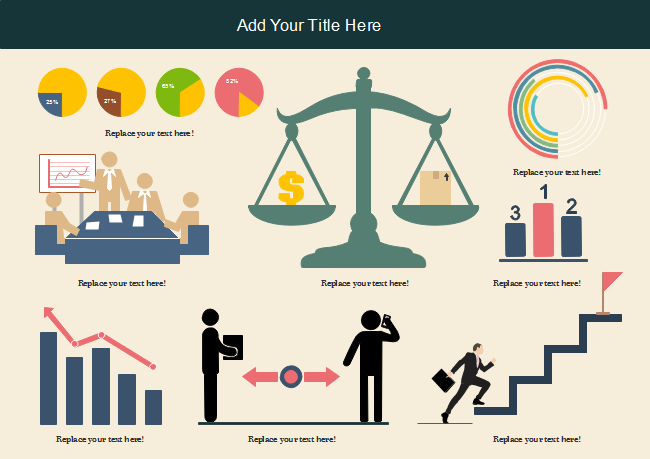The Financial Impact Of Defaulting On An Efficiency Bond
The Financial Impact Of Defaulting On An Efficiency Bond
Blog Article
Team Writer-
When a guaranty problems a performance bond, it ensures that the principal (the celebration that buys the bond) will accomplish their commitments under the bond's terms. If the major falls short to satisfy these obligations and defaults on the bond, the guaranty is in charge of covering any losses or damages that result.
1. Loss of track record: Defaulting on an efficiency bond can harm the principal's track record and reputation, making it harder to safeguard future organization or funding.
2. Legal and administrative costs: The guaranty may need to pay legal and administrative costs associated with going after the principal for problems or trying to remedy the circumstance.
3. Financial losses: The surety might need to cover the cost of completing the task or offering the solutions that the principal fell short to deliver. This can result in substantial monetary losses for the surety.
4. Enhanced premiums: If the principal has a background of back-pedaling efficiency bonds, they may be called for to pay higher costs in the future to acquire the needed bonding.
Generally, defaulting on an efficiency bond can have significant financial consequences for both the principal and the surety. It is very important for principals to very carefully consider their responsibilities and guarantee they have the ability to fulfill the regards to the bond to stay clear of these negative outcomes.
Defaulting on an efficiency bond can be an expensive mistake for businesses. When you fail to fulfill the bond's responsibilities, the financial effects can be significant. From paying the full bond amount to prospective legal fights and harmed relationships, the consequences can reverberate throughout your organization operations. Recognizing the intricate web of financial impacts that defaulting on an efficiency bond can have is vital for securing your firm's financial health and online reputation.
Financial Penalties for Defaulting
If you default on a performance bond, you'll likely encounter substantial financial penalties. These penalties can vary depending on the terms of the bond agreement yet usually involve paying the bond amount completely to the obligee. This means that if you fall short to fulfill your legal commitments, you need to pay the bond amount to the project proprietor or the entity that required the bond.
Additionally, you might also be in charge of any type of added costs incurred by the obligee because of your default, such as discovering a replacement service provider or covering job delays.
Back-pedaling a performance bond can likewise result in lawful costs and court expenses if the obligee decides to take lawsuit versus you to recover the bond amount. These costs can swiftly build up, more intensifying the economic effect of your default. It's vital to thoroughly examine and understand the regards to the efficiency bond to prevent these serious punitive damages.
Influence On Service Cash Flow
Defaulting on an efficiency bond can substantially influence your company cash flow, impacting monetary stability and functional abilities. When you back-pedal a performance bond, you risk shedding the bond amount, which can be a considerable amount. https://howtostartonlinebusinessw27271.actoblog.com/28242039/find-out-how-to-properly-handle-the-obstacles-of-settlement-bond-claims-in-building-and-construction-projects-to-accomplish-positive-outcomes affects your cash flow, as you'll need to locate alternate sources of funding to cover the bond quantity. Furthermore, failing can result in boosted https://www.constructiondive.com/news/why-private-construction-jobs-are-requiring-surety-bonds-too/618621/ from sureties, making it more challenging and more expensive to secure bonds in the future. This can additionally stress your capital as you may need to designate additional resources to fulfill bonding requirements.
The influence on your cash flow does not quit there. Back-pedaling a performance bond can likewise cause project delays or cancellations, leading to a loss of income. Additionally, the negative credibility that comes with defaulting can deter possible clients, better minimizing your capital. On the whole, defaulting on a performance bond can have harmful impacts on your business's financial health and capacity to run efficiently.
Legal Ramifications and Claims
Facing legal implications and possible lawsuits due to defaulting on a performance bond can significantly affect your company's online reputation and monetary standing. When you back-pedal an efficiency bond, the guaranty business might take lawsuit to recover the bond amount paid out. This could result in pricey lawful costs, court costs, and potential negotiations or judgments against your business.
Additionally, defaulting on an efficiency bond may bring about damaged connections with clients, subcontractors, and vendors, influencing your capacity to safeguard future agreements. Lawsuits developing from bond defaults can taint your business's reliability in the industry, making it challenging to attract brand-new companions or consumers.
In addition, if the default brings about a court judgment against your organization, it can cause possession seizure or liens, further stressing your financial stability. Consequently, it's important to comprehend the legal effects of defaulting on an efficiency bond and take aggressive steps to reduce the threats included.
Verdict
As you deal with the effects of defaulting on an efficiency bond, remember this: it resembles walking a tightrope without a safeguard. One wrong relocation can send you dropping into an economic freefall, with no way to quit the fall.
The financial penalties, cash flow effect, and legal ramifications are all waiting to capture you if you slip up. So tread meticulously, and always honor your dedications to prevent the rough repercussions of default.
